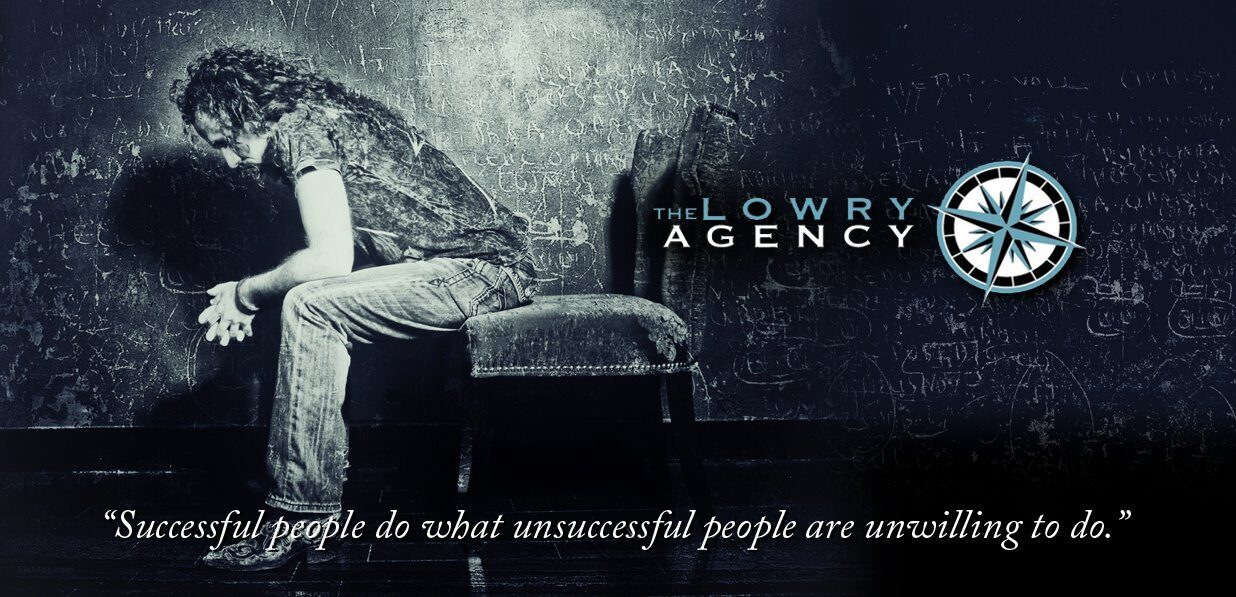Filling the VO Void – 5 Tips for Taking Advantage of Downtime
Filling the VO Void
5 Tips for Taking Advantage of Downtime
By Dave Courvoisier, The Lowry Agency Voice Over Talent
What happened?
Every freelancer hits that wall. The work…just…stops. Nothing’s coming in. Leads are long gone, and clients are clamming up. Hopefully it’s just a day or two…a week or two at the most.
You’d go crazy trying to figure out why. Sure, there may be some legitimate reasons: you’ve been slacking in your marketing, lead-generation, or referral “asks”…but sometimes you’re doing all that stuff – diligently – and still the work stops.
These moments are actually opportunities. Remember all the things you put on the back burner when you were crazy-busy with that big narration project and six auditions/day? Well, now’s the time to drag it out…now you have the time.
Since 80% of your VO business is marketing, and 20% is voicing anyway, this should not be a big surprise. In fact this may be one of the reasons the work stopped coming in – while you were busy voicing projects, the lead-generating activity stopped. It’s a nice predicament to be in, but the key is to be able to find the time to do both.
Take Advantage of the “Free” Time
Here’s a quick list of suggestions that will keep you “working” while you prepare for the next wave of paid gigs:
1) Practice. In VO terms: audition. Pick up what leads you can from pay-to-play sites, your agents, and web-searches. That’s right, do a Google search for “VO jobs” or “voiceover needed”. You’ll be surprised what comes up. When those sources dry up, just read. Practice on copy from Voices.com or Edge Studio. They have reams of legitimate copy for practicing. Record it. Edit it. Listen to it. Send it to someone for a critique. Play like it’s real, ‘cause it is.
2) Listen to ads. I’m serious. You’re already watching TV or driving your car with the radio on. Don’t skip past the commercial spots! Somebody voiced that spot. Why wasn’t’ it you? Listen to the nuances of the spot. The writing. The author’s intent. How the talent handled the juxtaposition of the video and the copy. Sometimes it even helps to transcribe the copy, and voice it yourself in your studio. Can you approximate the read that got someone the job? So you don’t have HIS/HER pipes…fine, play to your strengths. How would you read it? Record it. Send it to a friend for an honest opinion.
3) Visit VoiceBank.net and listen to all the demos you can stand. These are people represented by agents. They got on VoiceBank by no mistake. The demos you hear there are representative of the talent who are getting work today. How long is the demo? What was the first thing you heard? How many elements did the demo have? How many different reads did you hear in the demo? Does your current demo stack up? If not, (3) could just as well be Redo your demo (the subject of a whole ‘nother blog!)
4) Spruce up your marketing activity. Maybe you like to send postcards to prospects or regular clients to let them know you’re still alive. Maybe you’re an email maven. Maybe your approach is to camp out on the social networks. How’s your FaceBook profile looking? Does it have lots of trigger words that the bots will find? When’s the last time you tweeted ANYTHING, or contributed to a discussion on LinkedIn? All those seemingly mundane actions spread your name out on the internet. Maybe you’ve forgotten your promise to make at least 10 calls/week to prospects. WHATEVER your marketing duties are – get going! The stuff you do today will bring work tomorrow or next week.
5) Re-examine your audio chain and your studio. This could be the time to make that re-arrangement in your physical space that will absolutely remove a mental roadblock to recording. That strange crackling that pops up in your recordings? Track it down. When’s the last time you checked for an update on your software…or for that matter, this may be an opportunity to finally dig into the manual and find out what is the software keyboard shortcut you need for long-format narrations that will save you hours in the booth.
Get the drift?
There’s actually more…much more. Like prospecting for a good agent…asking your steady clients for a referral to another possible client… doing good research on the internet to find your next “warm”-call target.
See? These are things that get lost in the shuffle when you’ve got your head in a big voice project. ‘LOVE to have work. But that job was not a “gimme”. You did something right somewhere sometime to earn that job. Now’s the time – when you have the time – to get back to the basics and make it happen again.

0 comments